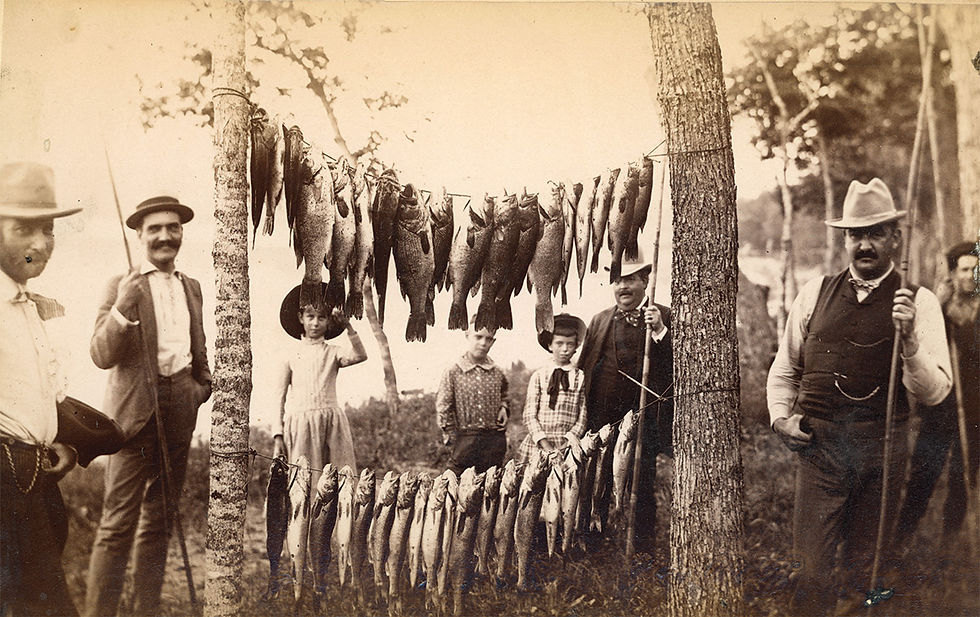For Tony...
- Sr Perspective

- Aug 27, 2024
- 4 min read
Mother’s reflects on losing her son to suicide
By Louise Echola of St. Cloud
Each time Tony was in the hospital, I’d go to the chapel. In the book where people write their prayer requests, I would always write, “For Tony, praying and hoping this time he would be healed.”
In the early morning hours of May 4, 2010, hospital staff requested that I give permission to have life support removed. Tony was only 34 years old. Father Stangl was at the ER to meet me, Tony’s sisters and Tony’s fiancé, along with one sister on the phone from Ohio. Father Stangl stayed with us until the end.

Tony loved to go fishing all of his life, especially with his dad. When he was little, he would always say, “I bet there’s fish in there” when we passed a lake or stream or pond. He loved music and spending time with his family and friends. He loved to cook. Loved movies and playing cards. He loved to work. Most of all he loved his children. He was so much fun to be with when he was healthy. All his life he always seemed to be in a hurry, as though he had some important thing that needed to be taken care of. When his dad passed away in 1993 it was as though Tony had lost his North Star.
He went to day treatment three times and to inpatient treatment in Minneapolis and Waverly, and both times had to leave early due to serious health problems. Twice he was admitted to the ICU with a medication-induced coma due to alcohol poisoning.
After years of struggling to be successful, to be a parent to his children, to be free of addictions, when he couldn’t work enough to keep up with child support, the state of Minnesota took his driver’s license. A short time later, his half-brother, Chris, died from a heart attack. Tony said, “he took my place” and would not go to the funeral. Tony became more depressed. Less than two weeks before he died, I brought Tony to an appointment with his doctor where he asked if he could go to treatment. He was told they’d check to see if he was eligible. He never learned if he was eligible.
I convinced myself I should have, could have, prevented his death somehow. I regret not having the right words to say to him, not knowing the signs to look for, not believing that he would actually want to die. I just needed to keep going forward, for loved ones, family and friends.
Later in 2010, I was invited to join the Board of Directors of NAMI St. Cloud Area…the National Alliance on Mental Illness. I have served on the Board since then and have learned about mental health and mental illness. It is helpful to know that mental illnesses are like physical illnesses. They are treatable and people who receive medical care and treatment can recover and live fulfilling lives. Just as with any illness, some mental illnesses may need life-long treatment and care. Those who have physical illnesses are never referred to in derogatory terms, and those who have a mental illness should never be referred to as crazy, nuts, or any other hurtful term. When someone you know has been treated for a mental illness, send them a card or flowers or call or visit, as you would for anyone who has an illness. A simple act of kindness can make a world of difference! We can never know what folks are going through…always lead with kindness.
Depression is the most common condition associated with suicide and is often undiagnosed and untreated. Some signs of depression may include withdrawing from family and friends who they’ve been close to; giving away possessions; or saying they are a burden to others. These are just a few signs of depression and should not be ignored. Take any mention of suicide seriously. You may encourage the person to seek help or to contact their doctor or therapist. You or they can call or text 988 to speak with someone any time there is concern.
If you know someone who you feel may be suicidal, talk to them in private. Talking about suicide can prevent a person from acting on it. Ask if they are thinking of hurting themself. You may need to practice doing this. You may be the one person who will ask. If they don’t say no, you can assume the answer is yes. Listen to their story and avoid giving advice. Tell them you are sorry they are having a hard time. Ask them if they have a plan. If the plan includes using a gun, and it is safe to do so, remove the gun from the area. If the means would be using alcohol or drugs, remove those items. Stay with them and offer to take them to get care. They or you can call or text 988 at any time to speak with someone.
Just recently I learned that there is a new treatment for addictions and anxiety using ultra sound. Amazing! We have come so far just in the past 10 years and there are new treatments for mental illnesses being studied every day!
One Easter Tony gave me a sweet card and wrote in it, “Mother, May the beauty of the simple thing always remain with you. Love you, Tony.”
We miss you every day Tony! Your spirit lives on in your children! You live on in our hearts!
If you are interested in learning about good mental health practices or about any topic regarding mental illness, go to www.namimn.org. Among their services and resources, Nami Minnesota has speakers who will provide presentations on many mental health topics. NAMI St. Cloud Area has an education program once a month covering topics relating to mental health and Family Support Group which meets twice a month online. Their warm phone line is 320-654-1259. Find out more information at www.namistcloud.com.
The National Prevention Lifeline is 988. You can also call 800-273-8255 or 800-784-2433, or visit suicidepreventionlifeline.org. There is now a crisis textline as well -- text MN to 741741.




Comments